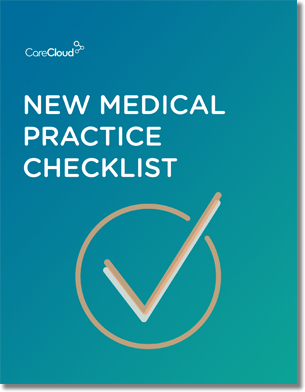Patients trust their doctors, and as the adoption of electronic health records spreads, so does patient trust in health information technology. Consumers are now more prone to believe EHRs can improve the quality and management of care.
A Harris Interactive study on consumer confidence in HIT points out patients understand the importance of EHRs, and three in four respondents whose physicians used paper records agreed EHR adoption would be productive.
Yet, there are myriad patient concerns about data breaches and privacy controls. For instance, 60% of respondents believed extensive EHR adoption would increase the amount of missing or stolen personal patient data, and over half agreed federal and state laws don’t do enough to protect medical records.
So what do patients see in EHRs?
Saves Time
Suppose Patient X suffers from multiple conditions – diabetes, cardiovascular disease, and a herniated disk from a recent car accident. Patient X is on a first-name basis with his primary care physician, cardiologist, and chiropractor.
It’s time-consuming for these doctors to communicate with each other without EHRs. However, if they’ve adopted an electronic health records system, all three can quickly cross reference notes, making it easier to coordinate care and deliver more effective treatment across Patient X’s spectrum of care.
Furthermore, if Patient X takes full advantage of his patient portal, he can schedule and confirm appointments and review test results from the comfort of his own home. In this model, Patient X is a partner and not only a client, which falls in line with the AMA’s current Code of Medical Ethics. He’s engaged in his personal health.
Better Outcomes
Having Patient X serve as a second set of eyes allows for seemingly minor mistakes to be corrected as well, which not only serves for better personal outcomes but also enhances the effectiveness of electronic health records as a whole.
Also, think about all the forms Patient X has filled out during visits to doctors’ offices. This makes it easy to forget a valuable piece of information, which can now be easily accessed electronically by any of his current doctors and specialists.
If Patient X is in his later years, he’s probably seen a number of doctors that have passed away, retired, or relocated, and records may have been lost or eradicated. Storing these records electronically, and granting Patient X access to them, could help remedy this issue, allowing for comprehensive and continuous patient care.
Sense of Comfort
According to a 2011 Deloitte survey, 66% of Americans admit they’d switch to a physician who offers access to medical records through a secure Internet connection. This seems puzzling, considering the sensitivity of electronic records.
But as concerning as security breaches may be, it’s comforting for Patient X to know an EHR can convey sensitive health information in any scenario.
Suppose another injury debilitated Patient X’s ability to communicate information about the location of his records or sensitive medical information like, say, a severe allergic reaction to his medication.
To make matters more complicated, Patient X hails from California but he was in Arkansas during the time of the incident. A doctor can pull up his information electronically from any part of the country within seconds and the problem is solved.
So, by engaging patients in their own care, EHRs can improve health outcomes and give patients a sense of comfort and security. These factors can override security concerns for patients, and with good reason.
Think about the evolution of online shopping and banking. While both activities once spread a significant amount of fear over sensitive personal information, they’re now widespread because of a number of safety measures that were put in place and protected over the years.
Security issues will likely be corrected, and they shouldn’t override a system that facilitates more efficient patient care.

Do you know what you need when setting up a new medical practice?

